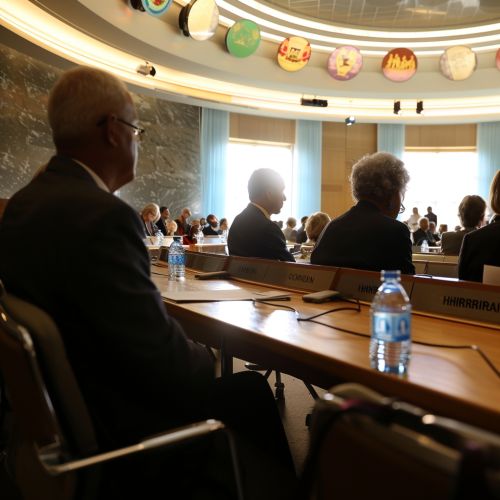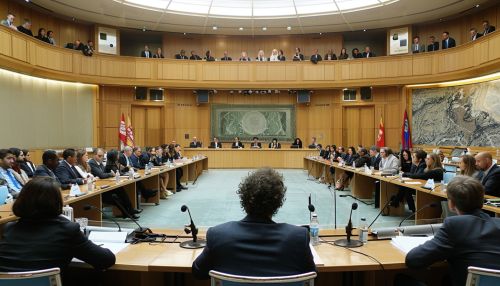General Comments of the Human Rights Committee
Introduction
The General Comments of the Human Rights Committee are authoritative interpretations of the provisions contained within the International Covenant on Civil and Political Rights (ICCPR). The Human Rights Committee, established under Article 28 of the ICCPR, is responsible for monitoring the implementation of the Covenant by its State parties. The General Comments provide clarity on the scope and meaning of the rights and obligations enshrined in the ICCPR, offering guidance to States, legal practitioners, and scholars on how to apply and interpret these provisions.
Purpose and Function
The primary purpose of the General Comments is to elucidate the content of the rights and obligations under the ICCPR, ensuring a uniform understanding and application across different jurisdictions. They serve as interpretative tools that assist States in fulfilling their obligations under the Covenant, particularly in the context of reporting and implementing measures. Additionally, General Comments are instrumental in the Committee's examination of State reports and individual communications, providing a framework for assessing compliance with the ICCPR.
Development and Adoption
The process of developing General Comments involves extensive deliberation and consultation. The Committee typically drafts a preliminary version, which is then subject to comments from States parties, non-governmental organizations (NGOs), and other stakeholders. This inclusive approach ensures that the General Comments reflect a broad range of perspectives and expertise. Once finalized, the General Comments are adopted by the Committee and published as official documents.
Structure and Content
General Comments are structured to provide a comprehensive analysis of specific articles or themes within the ICCPR. They often begin with an introduction that outlines the context and rationale for the Comment, followed by a detailed examination of the relevant provisions. The analysis includes interpretations of key terms, explanations of the scope of rights, and guidance on the implementation of obligations. Each General Comment concludes with recommendations for States parties on measures to enhance compliance with the ICCPR.
Key General Comments
General Comment No. 6: Right to Life
General Comment No. 6, adopted in 1982, addresses Article 6 of the ICCPR, which guarantees the right to life. The Comment emphasizes the inherent nature of this right and its fundamental importance. It provides guidance on issues such as the prohibition of arbitrary deprivation of life, the obligation to prevent and investigate unlawful killings, and the duty to protect individuals from threats to their life, including environmental hazards.
General Comment No. 18: Non-Discrimination
Adopted in 1989, General Comment No. 18 elaborates on the principle of non-discrimination as enshrined in Articles 2 and 26 of the ICCPR. The Comment clarifies the meaning of discrimination, encompassing both direct and indirect forms. It highlights the obligation of States to ensure equality before the law and to take positive measures to eliminate discrimination in all its forms, including on grounds such as race, sex, religion, and political opinion.
General Comment No. 34: Freedoms of Opinion and Expression
General Comment No. 34, adopted in 2011, provides an in-depth analysis of Article 19 of the ICCPR, which protects the freedoms of opinion and expression. The Comment underscores the essential role of these freedoms in a democratic society and outlines the permissible limitations on these rights. It addresses issues such as the protection of journalists, the regulation of hate speech, and the responsibilities of States in ensuring an enabling environment for free expression.


Impact and Significance
The General Comments of the Human Rights Committee have had a profound impact on the interpretation and implementation of the ICCPR. They are frequently cited by national courts, international tribunals, and human rights bodies as authoritative interpretations of the Covenant's provisions. The Comments have also influenced the development of international human rights law, contributing to the evolution of norms and standards.
Challenges and Criticisms
Despite their significance, the General Comments have faced challenges and criticisms. Some States have questioned the legal status of the Comments, arguing that they are not binding and should not be treated as such. Additionally, there have been concerns about the inclusiveness and transparency of the drafting process, with some stakeholders calling for greater participation and consultation. The Committee has made efforts to address these concerns by enhancing its engagement with a wide range of actors and ensuring that the drafting process is as open and transparent as possible.
Future Directions
The Human Rights Committee continues to develop new General Comments to address emerging issues and evolving interpretations of the ICCPR. Future Comments are expected to focus on topics such as digital rights, climate change, and the rights of marginalized groups. The Committee's ongoing work in this area underscores the dynamic nature of human rights law and the need for continuous reflection and adaptation to new challenges.
